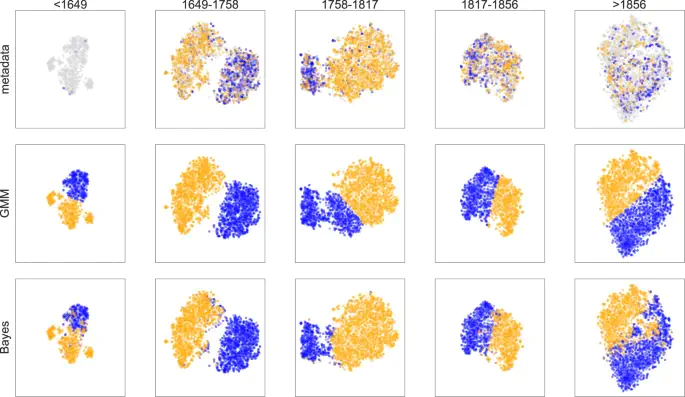Exploring the foundations of tonality: statistical cognitive modeling of modes in the history of Western classical music

Abstract
Tonality is one of the most central theoretical concepts for the analysis of Western classical music. This study presents a novel approach for the study of its historical development, exploring in particular the concept of mode. Based on a large dataset of approximately 13,000 musical pieces in MIDI format, we present two models to infer both the number and characteristics of modes of different historical periods from first principles: a geometric model of modes as clusters of musical pieces in a non-Euclidean space, and a cognitively plausible Bayesian model of modes as Dirichlet distributions. We use the geometric model to determine the optimal number of modes for five historical epochs via unsupervised learning and apply the probabilistic model to infer the characteristics of the modes. Our results show that the inference of four modes is most plausible in the Renaissance, that two modes–corresponding to major and minor–are most appropriate in the Baroque and Classical eras, whereas no clear separation into distinct modes is found for the 19th century.